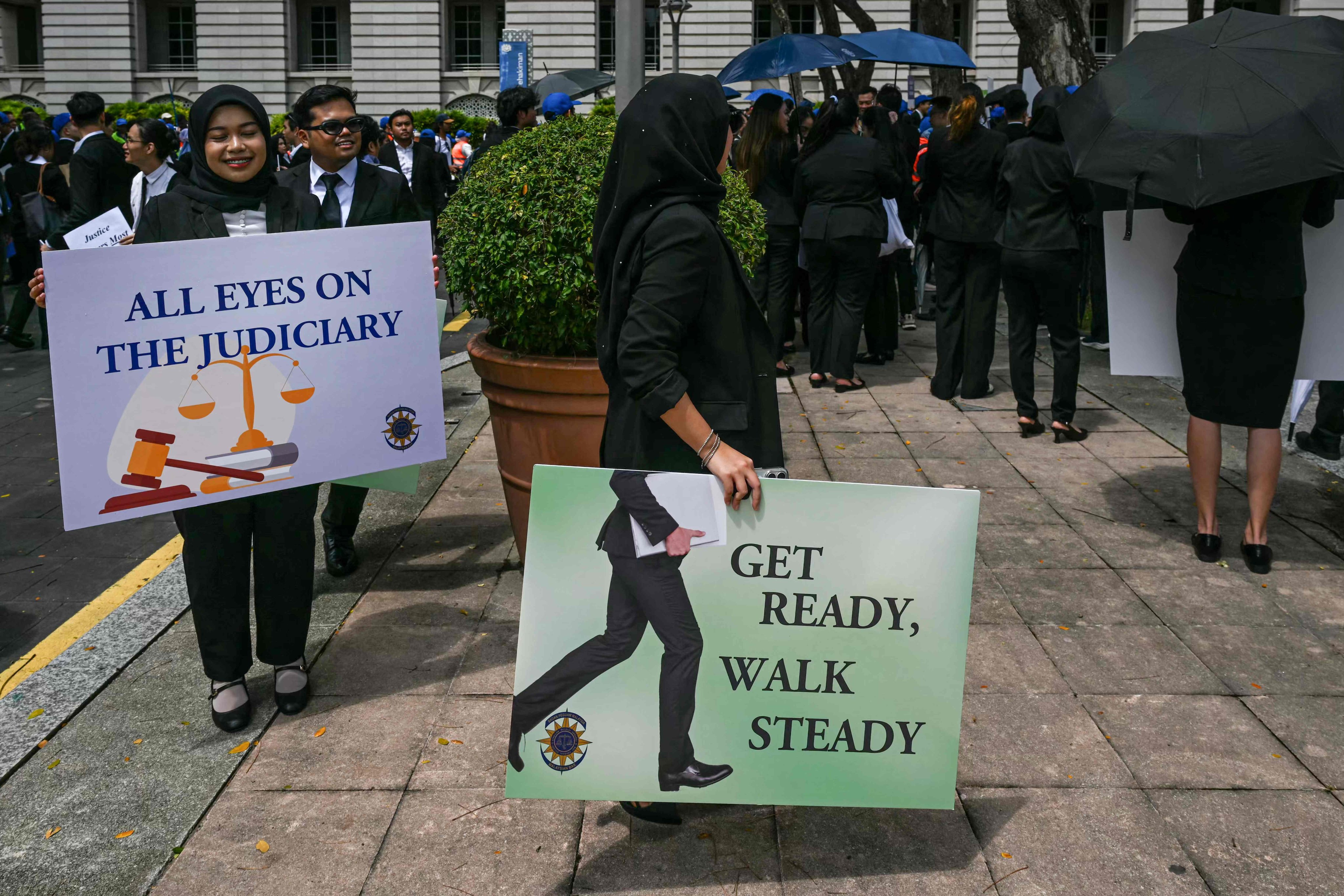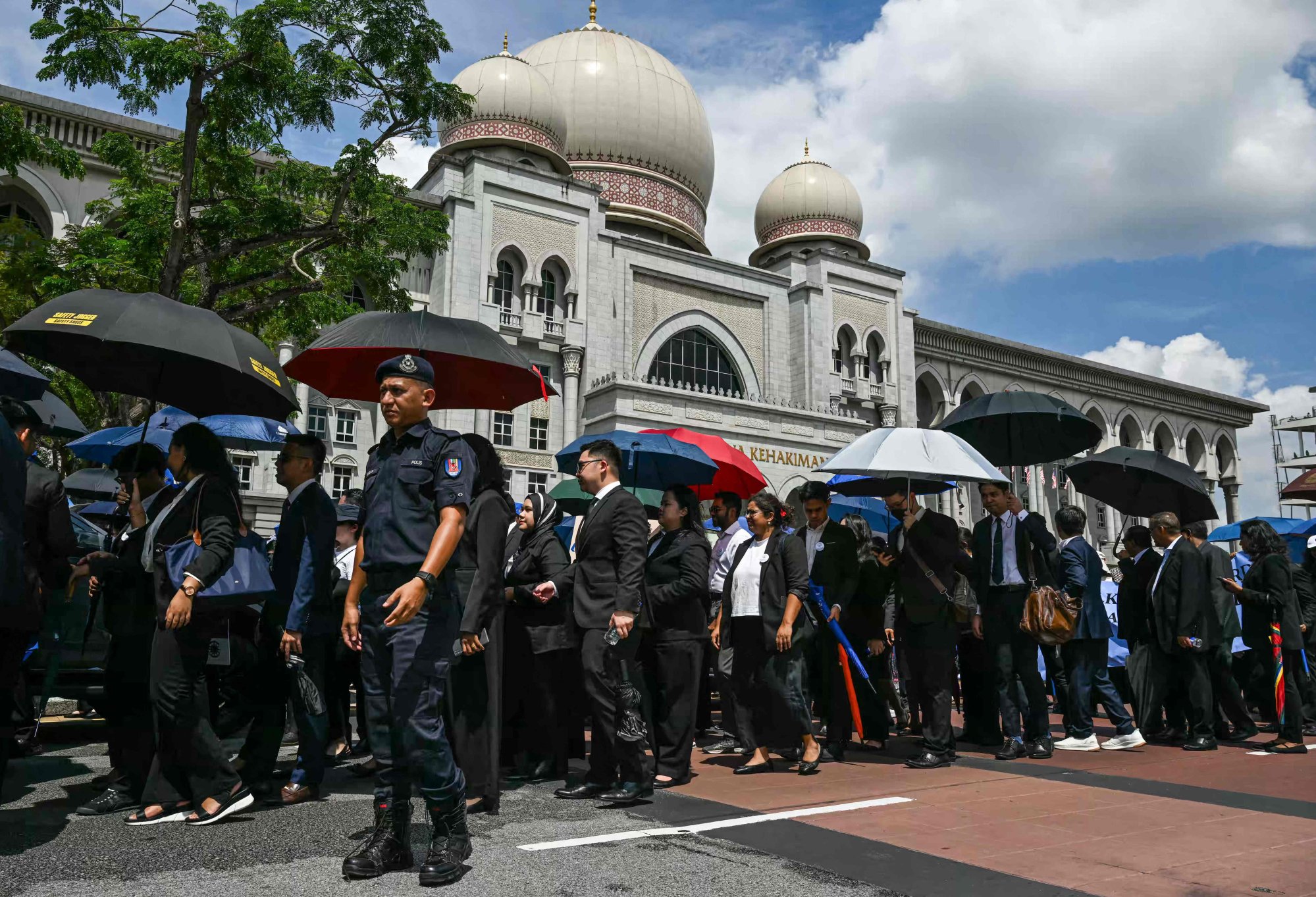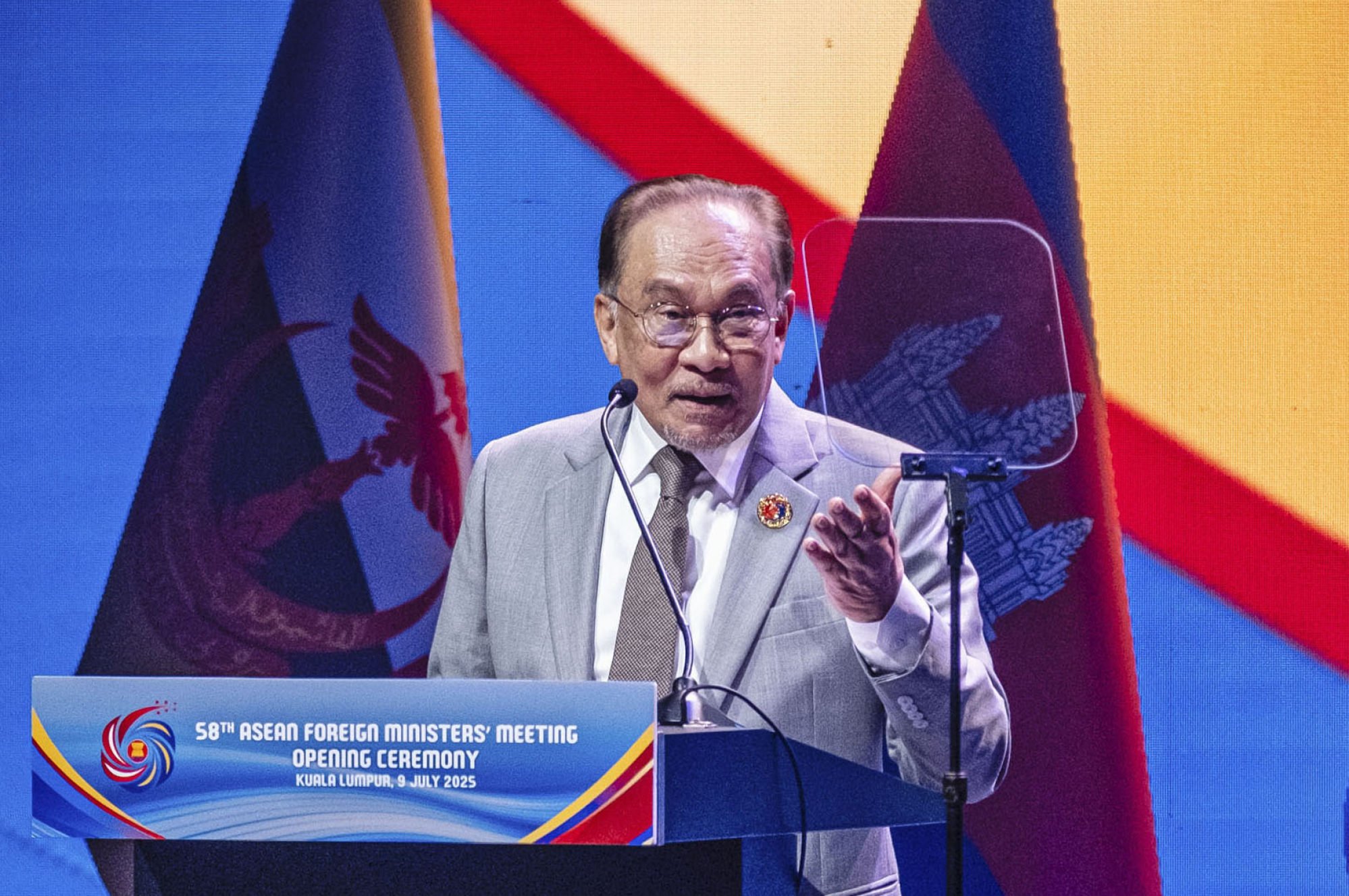Malaysia to seek lawyers’ views as anger over judge selection process mounts
With the judiciary facing a severe shortage soon, lawyers are concerned about potential political interference to fill the vacancies

Malaysia’s government on Tuesday invited the Bar Council to take part in a review of the country’s judicial appointment process, in a bid to quell public discontent over alleged executive interference that has thrown the judiciary into crisis.
The move comes just a day after nearly 1,000 lawyers marched to the Prime Minister’s Office demanding urgent reforms and greater transparency in the selection of judges amid a shortage at the top of the courts and warnings of further institutional erosion.
The controversy stems from the retirement last week of Malaysia’s two most senior judges – Chief Justice Tengku Maimun Tuan Mat and Court of Appeal President Abang Iskandar Abang Hashim – and the government’s delay in naming successors. As nine more Federal Court judges are expected to step down by the end of the year, the judiciary could be stretched further with 31 vacancies across the country’s courts, according to observers.
Prime Minister Anwar Ibrahim has come under pressure for allegedly delaying the appointment of judicial replacements and for reportedly backing a politically aligned and inexperienced candidate as chief justice, claims he has denied.
On Tuesday, Law Minister Azalina Othman Said said the government was already conducting a comparative study on the current appointment system with the parliamentary select committee and would now include the Bar Council in the process.
“The government is always open to the views of all parties, including the Malaysian Bar, which will also be invited to participate in this study, to ensure a judicial appointment system that is more transparent, has integrity, and earns the people’s trust,” she said.

Referencing the Bar Council’s “Walk to Safeguard Judicial Independence” on Monday, Azalina said the government took note of lawyers’ grievances and reaffirmed its commitment to address the issue transparently and responsibly.
The Bar Council said Monday’s march was intended to highlight “grave institutional concerns” over judicial vacancies, leadership continuity, and the urgent need for reforms to protect the independence of one of Malaysia’s most vital democratic institutions.
“The public is entitled to a judiciary that is not only independent, but seen to be independent,” said Bar president Ezri Abdul Wahab. “Anything less undermines confidence in the administration of justice.”
The government’s statement came after Anwar convened lawmakers from his Pakatan Harapan (PH) coalition at his official residence to address the legal fraternity’s concerns. The meeting followed a rare public rebuke from 10 of PH’s lawmakers – including his daughter and deputy party president Nurul Izzah Anwar – who broke ranks to express concerns similar to those raised by the Bar.
The group, which included outspoken former economy minister Rafizi Ramli, called for a parliamentary investigation, including into Anwar’s role, to “clear the air”. The prime minister “has all the answers” with the power to advise the king on judicial appointments, it said.

While details of the discussion remain undisclosed, PH lawmaker Wong Chen, one of the 10, told the public that an announcement would be made “in a couple of days”.
Unhandled type: inline-plus-widget {“type”:”inline-plus-widget”}
Malaysia’s judiciary has spent decades rebuilding public confidence after the 1988 judicial crisis, when then-prime minister Mahathir Mohamad dismissed the chief justice and suspended several senior judges, effectively curbing the courts’ independence as a coequal branch of government.
The current controversy has drawn comparisons to a similar scandal in 2007, when senior lawyer V.K. Lingam was caught on video appearing to discuss judicial appointments with then-chief justice Ahmad Fairuz Abdul Halim. The recording triggered a Royal Commission of Inquiry, which confirmed political interference had occurred, but no one was prosecuted.